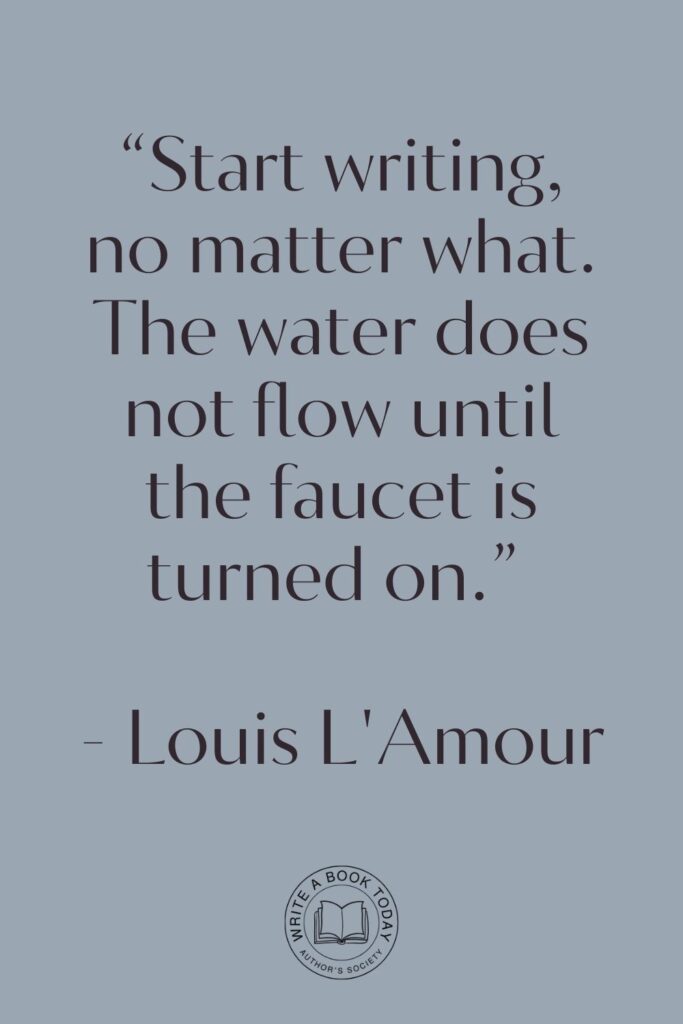Have you ever wondered how to blend your unique writing style with others without losing your creative essence? In the vibrant world of writing, collaborating with other writers can be both exhilarating and daunting. You might fear that your distinct voice could get lost in the chorus of ideas. But fear not!
This guide will unravel the art of writer collaboration while ensuring that your personal flair shines through. From understanding what collaboration truly means to embracing its benefits, you’ll discover strategies to maintain your voice and thrive in shared projects.
Understanding the Art of Collaboration
Collaboration among writers is akin to a symphony where each instrument plays its part, creating a harmonious melody. It’s about bringing together diverse perspectives and styles to craft something greater than the sum of its parts.
Whether you’re co-authoring a novel or contributing to an anthology, understanding the nuances of working with others is crucial. It’s not just about merging words but also about sharing visions and blending talents.
What Does Collaborating with Other Writers Mean?
Collaborating with other writers is a dynamic process that involves pooling resources, ideas, and creativity to produce a cohesive piece of work. It requires open communication and a willingness to adapt, all while staying true to one’s unique style.
Think of it as a dance where partners move in sync yet maintain their individuality. By collaborating, you can learn new techniques, explore different genres, and expand your horizons.
When entering a collaboration, set aside time to discuss each writer’s strengths and weaknesses. This allows you to allocate tasks effectively and ensure everyone contributes their best work.
Acknowledge the unique skills each collaborator brings to the table, fostering a sense of appreciation and respect. This approach not only enhances the quality of the final piece but also strengthens the working relationship.
Benefits of Writer Collaboration
The benefits of collaborating with other writers are manifold. It offers fresh perspectives, introduces you to new audiences, and can lead to unexpected breakthroughs in your writing.
By engaging with other voices, you enrich your own narrative and push the boundaries of your creativity. Moreover, collaboration often results in faster completion of projects, as tasks are shared among team members, each contributing their expertise.
- Broader audience reach through shared networks
- Enhanced creativity from diverse perspectives
- Increased productivity through task division
- Opportunity for skill development and learning
Common Misconceptions About Collaboration
Many writers hesitate to collaborate due to common misconceptions. Some fear that their individual style might be overshadowed, while others worry about conflicts arising from differing opinions.
However, effective collaboration isn’t about compromise but about complementing each other’s strengths. It’s essential to view collaboration as a partnership where each voice is valued and heard.
Another misconception is that collaboration limits creative freedom. On the contrary, it often expands it by introducing new ideas and techniques. By embracing this approach, writers can grow and evolve, finding inspiration in the diversity of thoughts and experiences.

Finding Your Perfect Collaboration Partner
Embarking on a collaborative project requires finding the right partner, much like finding a kindred spirit who shares your vision yet brings something new to the table.
Compatibility in writing styles and mutual respect are vital for a successful partnership. A well-matched collaborator can elevate your work and provide support throughout the creative process.
Identifying Compatible Writing Styles
Finding a collaborator with a compatible writing style is crucial. It ensures that your voices blend seamlessly without clashing. Look for writers whose work resonates with yours, whether in tone, genre, or thematic elements.
Compatibility doesn’t mean identical styles but rather complementary ones that enhance each other.
To assess compatibility, exchange samples of your work with potential collaborators. Discuss your creative processes and expectations for the project. This initial exchange helps identify common ground and potential challenges, laying the foundation for a successful collaboration.
Remember, it’s not about finding someone who writes exactly like you but someone whose style complements yours.
Feeling lost with your debut novel?
Fiverr Pro connects you with expert editors, designers, and marketers – everything you need to get your book ready for success!

Networking with Other Writers
Networking is a powerful tool for finding collaboration partners. Attend writing workshops, join online forums, or participate in local writer meet-ups to connect with fellow writers. Building a network of peers opens doors to potential collaborations and provides a supportive community to share ideas and feedback.
Engage actively in these communities, offering insights and support to others. This not only helps establish your presence but also attracts like-minded individuals who might be interested in collaborating. Networking is about building relationships, so approach it with authenticity and genuine interest in others’ work.
Using Online Platforms for Collaboration
In today’s digital age, online platforms offer a plethora of opportunities for writer collaboration. Websites and apps dedicated to writers provide spaces to connect, share projects, and find collaborators.
Platforms like Google Docs, Trello, and Slack facilitate seamless communication and project management, making it easier to collaborate remotely.
| Platform | Features |
|---|---|
| Google Docs | Real-time editing, comments, and version history |
| Trello | Task management, project boards, and collaboration tools |
| Slack | Instant messaging, file sharing, and integration with other apps |
These platforms not only streamline the collaborative process but also allow writers from different geographical locations to work together effortlessly. Embrace these tools to enhance communication and productivity in your collaborative projects.
Maintaining Your Voice in Collaborative Projects
One of the most significant concerns for writers in collaborative projects is maintaining your voice. Your unique style is your signature, and preserving it amidst collaboration is crucial. With careful planning and open communication, you can ensure that your voice remains distinct and recognizable in the final piece.

Strategies for Preserving Individual Style
Preserving your individual style in a collaborative setting requires deliberate effort. Start by clearly defining your style and understanding what makes it unique.
Share this with your collaborator to ensure mutual respect for each other’s voices. During the writing process, regularly review the work to ensure consistency and alignment with your style.
Another effective strategy is to allocate specific sections or characters to each writer. This allows you to infuse your voice into particular parts of the project, maintaining a sense of ownership and authenticity. By respecting each other’s creative space, you can create a cohesive yet diverse narrative.
Setting Clear Expectations and Boundaries
Clear expectations and boundaries are essential for successful collaboration. Before starting the project, discuss your goals, roles, and responsibilities. Establish guidelines for decision-making, conflict resolution, and deadlines. This ensures that everyone is on the same page and minimizes misunderstandings.
Draft a collaboration agreement outlining each writer’s responsibilities, deadlines, and creative input. This formalizes the arrangement and serves as a reference point if disputes arise.
Ensure that the agreement includes a plan for handling revisions and feedback, emphasizing respect for each writer’s voice. Such clarity fosters a positive working environment and supports the project’s success.
Google Docs is for notes. Scrivener is for novels. Upgrade your writing game and try it for free today!

Communicating Openly and Effectively
Effective communication is the cornerstone of any successful collaboration. Regular check-ins, updates, and feedback sessions help maintain transparency and trust.
Encourage open dialogue where everyone feels comfortable expressing their thoughts and concerns. This not only strengthens the partnership but also enhances the quality of the final work.
Utilize tools like video calls or messaging apps to facilitate communication, especially if you’re collaborating remotely. These tools help bridge the gap and ensure that everyone is aligned with the project’s progress and direction.
Remember, collaboration is a two-way street, so be open to feedback and willing to make adjustments.
Writer Collaboration Tips for Success
To ensure a fruitful collaboration, it’s essential to establish a workflow that accommodates all parties involved. This requires planning, organization, and a willingness to adapt. By following these writer collaboration tips, you can create a harmonious working environment that fosters creativity and productivity.
Establishing a Collaborative Workflow
A well-structured workflow is vital for managing collaborative projects. Define the stages of the project, from brainstorming to final edits, and assign tasks accordingly. Use project management tools to track progress and deadlines, ensuring that everyone stays on course.
Regularly review the workflow to identify any bottlenecks or areas for improvement. Flexibility is key, so be open to adjusting the workflow as needed to accommodate new ideas or changes in direction. A smooth workflow enhances efficiency and allows the creative process to flourish.

Incorporating Feedback Without Losing Your Voice
Feedback is an integral part of collaboration, but it can sometimes feel like a threat to your individual style. To incorporate feedback effectively, approach it with an open mind and a focus on improvement. Evaluate suggestions objectively, considering how they align with your vision and style.
Remember, feedback is a tool for growth, not criticism. Use it to refine your work and enhance the overall quality of the project. If a suggestion doesn’t resonate with you, discuss it with your collaborator to find a compromise that respects both perspectives.
Celebrating Individual Contributions in the Final Piece
In a collaborative project, it’s essential to acknowledge and celebrate each writer’s contributions. This not only boosts morale but also reinforces the value of each participant’s unique voice. Highlight the strengths and achievements of your collaborators, both within the project and publicly, if appropriate.
Consider including an author’s note or acknowledgments section in the final piece to recognize each writer’s contributions. This not only gives credit where it’s due but also provides readers with insight into the collaborative process. Celebrating individual achievements fosters a sense of pride and encourages future collaborations.
Real-Life Stories from Experienced Collaborators
Learning from those who have successfully navigated the waters of collaboration can be incredibly insightful. Real-life stories from experienced writers offer valuable lessons and inspiration.
These narratives showcase the triumphs and challenges of collaboration, providing a roadmap for others embarking on similar journeys.
Lessons Learned from Successful Collaborations
Successful collaborations often stem from mutual respect and a shared vision. Writers who have thrived in partnerships emphasize the importance of flexibility and communication. They highlight the value of embracing diverse perspectives and being open to change.
These collaborations often lead to unexpected creative breakthroughs and lasting professional relationships. By learning from these experiences, you can apply their insights to your own projects, enhancing your collaborative efforts.
Overcoming Challenges Together
Challenges are inevitable in any collaborative endeavor, but they can be overcome with perseverance and teamwork. Experienced collaborators share stories of overcoming creative differences, logistical hurdles, and time constraints. They emphasize the importance of patience, understanding, and compromise.
By facing challenges together, collaborators build resilience and strengthen their partnership. These experiences often lead to growth and a deeper appreciation for each other’s talents, paving the way for future collaborations.

Building a Supportive Writing Community
Collaboration isn’t limited to individual projects; it extends to building a supportive writing community. Experienced writers advocate for fostering an environment where ideas are freely exchanged, and feedback is constructive. This sense of community enhances creativity and provides a network of support.
Participate actively in writing groups, both online and offline, to contribute to and benefit from this community. Share your experiences and insights, and be open to learning from others. A supportive community enriches your writing journey and opens doors to new collaborative opportunities.
No marketing platform? No social following? No problem!
Publisher Rocket helps you market your debut novel like a pro.
It’s a gamechanger for debut authors – try it today!


Embracing the Journey of Collaborative Writing
The journey of collaborative writing is one of exploration and discovery. It’s about embracing the unknown and finding joy in the process. By reflecting on your growth and encouraging others to collaborate, you contribute to a vibrant and dynamic writing landscape.
Reflecting on Your Growth as a Writer
Collaborative projects offer an opportunity for personal and professional growth. Reflect on how these experiences have shaped your writing style and broadened your perspective. Consider the skills you’ve acquired and the relationships you’ve built along the way.
Embrace the lessons learned and use them to inform future projects. Reflection not only enhances self-awareness but also fuels your passion for writing, inspiring you to continue exploring new avenues.
Encouraging Others to Collaborate
As you experience the benefits of collaboration, encourage others to embark on similar journeys. Share your experiences and insights, highlighting the positive impact of collaboration on your writing. By fostering a culture of collaboration, you contribute to a thriving writing community.
Support fellow writers by offering guidance and resources, and be open to new collaborative opportunities. Encouragement and mentorship play a vital role in building a community where creativity flourishes.
Looking Ahead: Future Collaborative Opportunities
The world of writing is ever-evolving, presenting endless possibilities for collaboration. As you look to the future, remain open to new opportunities and partnerships. Embrace the challenges and rewards of collaboration, knowing that each experience enriches your writing journey.
Whether you’re venturing into new genres, exploring different formats, or collaborating with writers from diverse backgrounds, the potential for growth is limitless. Embrace the journey, and let your unique voice shine through every collaborative endeavor.








